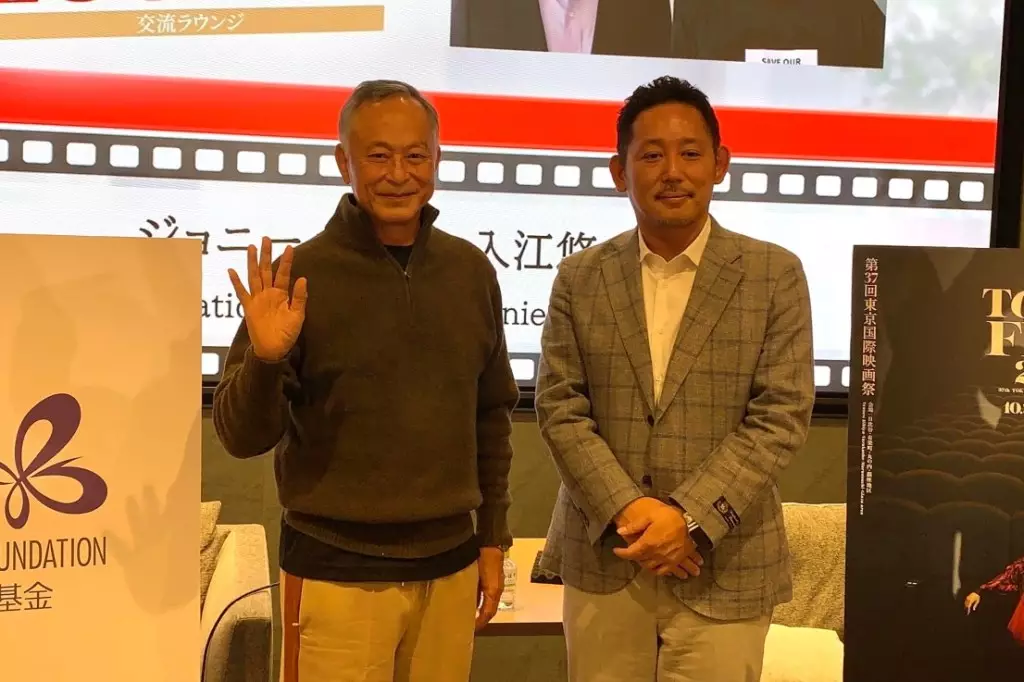At the forefront of Hong Kong cinema, Johnnie To has long captivated audiences with his unique filmmaking style that diverges from traditional norms. In a recent discussion at the Tokyo International Film Festival (TIFF) with Japanese director Yu Irie, To opened up about his creative process and the shifting dynamics of the film industry, particularly in Hong Kong. One striking aspect of To’s career is his willingness to embrace a less conventional, more spontaneous style of filmmaking, often choosing to work without a detailed screenplay. This method may seem radical, but it has been a fundamental part of To’s artistic vision.
To explained his perspective, stating, “For me, creating a proper screenplay before you start shooting means that the movie is already completed.” This philosophy emphasizes his belief in the fluidity of narrative and the spontaneous moments of inspiration that arise during production. Unlike scripted films that adhere strictly to a manuscript, To’s approach allows for a more organic development of the story and characters, lending his films an authentic and dynamic feel that resonates well with audiences.
Yu Irie, as TIFF’s director in focus, reflected on his admiration for To’s body of work, citing films such as *Exiled* and *The Mission* as foundational influences in his own filmmaking journey. This acknowledgment illustrates To’s impact on successive generations of filmmakers, showcasing the cultural connection between Hong Kong cinema and other film industries. However, To also lamented the changing landscape of Hong Kong filmmaking, figuring that current filmmakers face significant constraints due to increasing censorship.
To articulated his concerns about the current limitations imposed on creative expression, remarking, “When it comes to expression and execution, there have been some regulations introduced in Hong Kong.” With the incorporation of more stringent censorship driven by external influences, aspiring filmmakers in Hong Kong may find themselves battling over regulatory obstacles that can stifle innovation and experimentation.
To’s distinct working rhythm further sets him apart from many contemporaries. He often juggles multiple projects simultaneously, focusing on one genre while leaving others temporarily on hold. “I’d start shooting one thing, then drop it for a few months if I wasn’t feeling inspired,” he remarked, highlighting his adaptability and instinctual understanding of artistic flow. This method can be viewed as a double-edged sword; while it allows for greater creative freedom, it also introduces challenges in terms of continuity and overall narrative coherence that might not align with the more traditional filmmaking protocols.
The anecdote about his film *Sparrow* serves as a testament to the unpredictability of filmmaking. To navigated funding shortages by alternating between multiple projects to secure the necessary financial backing, underscoring the harsh economic realities that filmmakers often encounter. This flexibility illustrates the resilience required for independent filmmakers, where creative vision must often adapt in response to external conditions.
A passionate advocate for emerging filmmakers, To founded the Fresh Wave International Short Film Festival to nurture new talent in Hong Kong. He acknowledges the struggles faced by young creators, urging them to adapt strategically in light of the current media landscape. “If you can’t create the film in Hong Kong, make it in Singapore, Malaysia, Taiwan, or even here in Japan.” This advice encapsulates his belief in the universality of talent. Walls built by uncertainty or regulations should not dissuade filmmakers from pursuing their craft; rather, they should be seen as challenges to traverse.
Despite his concerns over diminishing support for the industry, To emphasizes the importance of perseverance and innovation. He argued for increased funding—both from government and private sectors—to reinvigorate the Hong Kong film industry and foster more opportunities for storytelling across diverse mediums. Acknowledging his own dwindling time in the industry, he stated, “I’m going to be 70 soon. The situation has changed, the times have changed.” This recognition not only marks his legacy but also stresses the urgency of supporting new voices in cinema.
In closing, Johnnie To’s revelations during the conversation at TIFF serve as both a reflection on the tumultuous shifts in the Hong Kong film industry and an inspirational call to action for aspiring filmmakers. While challenges abound, whether stemming from censorship or financial constraints, the spirit of creativity and resilience can guide a new generation toward innovative storytelling. As To’s work exemplifies, the potential for artistry to break through barriers remains strong, and it is up to upcoming filmmakers to harness this potential—adapting, evolving, and creating meaningful cinema in a world increasingly defined by its challenges.


Leave a Reply